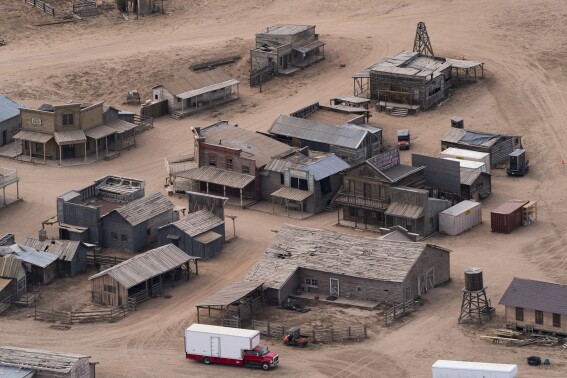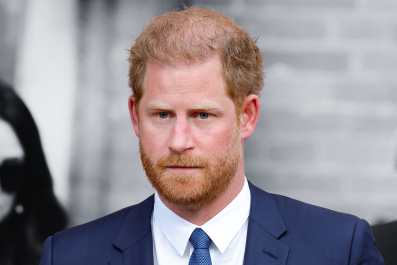They did their best to hide it, but there was no mistaking the air of quiet satisfaction (some might say smug complacency) which has infused BBC output these past few weeks. As usual, the Corporation’s weapon of choice was story selection; during the campaign, it selected for greatest prominence those stories which did the Tories (and Reform) most damage. And, having done their bit, BBC people feel that at long last the era of Tory terror is ending; in New Broadcasting House it will have been “trebles all round” when the votes were counted.
In one way, you cannot blame them; the relationship between the BBC and recent Conservative administrations has been an uneasy one. The quite obvious anti-Conservative bias provoked a reaction – though not an especially effective one – from the Tories. The BBC was kept on short rations, the licence fee was squeezed and complaints about a lack of impartiality were loud and many. But here we are, entering a new political era and the Corporation is still standing, its prerogatives and prejudices intact, looking forward to what it hopes will be a mutually supportive relationship with a new Labour government.
The BBC will be expecting to be enfolded in a warm embrace, and history suggests its confidence is justified. After Labour’s 1997 landslide, the BBC was one of the first beneficiaries. At that point it was operating under a five-year plan agreed by John Major’s administration which kept downward pressure on the licence fee. One of Gordon Brown’s first decisions as chancellor was to rip up that agreement and take the financial pressure off. And why not? As a loyal Labour ally, it was payback time. So maybe in the next few weeks, history will repeat itself and if so senior BBC management will heave a sigh of relief.
But even if the new Government is feeling generous, financial largesse will not, of itself, be a permanent solution to the BBC’s troubles. Because the licence fee is running out of time; as the BBC begins a second century of existence, finding some alternative funding mechanism is becoming an urgent priority. Before the election was called, there was a working party within the Department for Media Culture and Sport (DCMS) which had been meeting for some months and was halfway through its deliberations. That work stopped immediately the election was announced, and whether it begins again will be entirely up to the new Secretary of State. If they’re wise, they should recall the committee because the BBC needs a fresh approach.
However sympathetic the new Government is towards the BBC, there’s widespread agreement in the media that something will have to change. And there is a deadline: the Royal Charter, under which the BBC operates, is due for renewal in 2027, and by then there is an expectation that decisions will have been made about the future. Even those who would like to see the licence fee simply extended for another 10 years fear that it is not the long-term solution, for three big reasons.
Firstly, the licence fee is highly unpopular. John Curtice, the BBC’s favoured polling guru, has tracked public attitudes and found there is a large and consistent majority in favour of scrapping the licence fee. Curtice points out that when the pollster Public First asked people, in 2021, to name the most unfair taxes, the licence fee was nominated by 33 per cent (only inheritance tax, at 34 per cent, was viewed less favourably).
Secondly, because of its unpopularity, raising the licence fee is politically difficult for Labour. It is a regressive tax and, at £169.50, weighs heavily on the poor. Simply increasing the fee will not be popular with the new Government’s voters. And thirdly, the licence fee is no longer even providing a stable and rising revenue stream which the BBC says it needs to compete; for several years now, increasing numbers of people have refused to pay. Some of these refuseniks say the BBC is politically biased against them; others, largely younger people, don’t use the BBC much and object to what they see as an arbitrary tax.
Taken together, these factors underline the need for a new method of funding – one which will give the Corporation the money it needs without arousing the ire of those forced to pay it. What are the options? One is to copy the Germans, who have a “rundfunkbeitrag”, which is a broadcasting tax levied on every household and business.
Peter Bazalgette, co-chairman of the Creative Industries Council, recently wrote that because German businesses and other organisations contribute, it is “a way of getting civil society to support public service media. By this means the household licence fee could actually be reduced without damaging the BBC.” There’s an obvious problem though: throughout the election campaign, Labour promised not to increase taxes, and a new broadcasting tax, even if it was made more progressive by making business and the rich pay more, would be a highly visible way of breaking that promise.
Many industry insiders want the BBC to embrace the subscription model; they argue that the Corporation should emulate the success of streaming services such as Netflix. David Elstein, former chief executive of Channel 5, who was a member of the DCMS panel, says the problem is persuading the BBC hierarchy: “As long as the licence fee survives, you cannot. The BBC sees subscription as an existential threat to the licence fee. If it were found to be successful as a ‘top-up’, the pressure to replace the licence fee would be irresistible.”
Elstein believes that to bring the BBC to a point where it accepts subscription, the Government should offer a system of “split financing” under which public service output should be free to all and funded by a public broadcasting authority. Other output – drama, sport, etc – would be available only to those who paid a subscription.
Labour will be tempted to stick with the licence fee, but Elstein believes this would be a strategic error, and would risk “killing the BBC with kindness”. The Corporation believes that it should be available to all, and there has been a refusal to trade in the certainties of the licence fee for anything else. But the moment may now be approaching where this line cannot be held.
Of course, if the BBC were doing its job properly, were truly our “national broadcaster”, the licence fee would never have become controversial in the first place. Imagine a situation in which all shades of political opinion and all sectors of society felt they were given a fair hearing. If that were so, would there be any pressure now to replace the licence fee? At its current level it’s not an excessive price, certainly compared with the other streaming services. And you get a lot for your money – all the radio services as well as some high-quality non-news programming.
The trouble is that, even if the Corporation now has friends in government, it has many enemies out in the country; people who believe it has betrayed its central mission by becoming ideologically aligned with elite opinion. The right way for the BBC to secure its long-term future would be by making real the impartiality it so loudly proclaims – if that could be done, maybe the clamour to replace the licence fee would subside because a properly impartial BBC would be in everybody’s interest.
The Tory governments of the past decade promised to sort out the BBC but failed to do so (thus adding another to the long list of things left undone). A Labour government will probably take the pressure off the BBC for now, but the Corporation should understand that its long-term security relies on it regaining the trust of the whole country: it’s a long way from that right now.
Disclaimer: The copyright of this article belongs to the original author. Reposting this article is solely for the purpose of information dissemination and does not constitute any investment advice. If there is any infringement, please contact us immediately. We will make corrections or deletions as necessary. Thank you.




